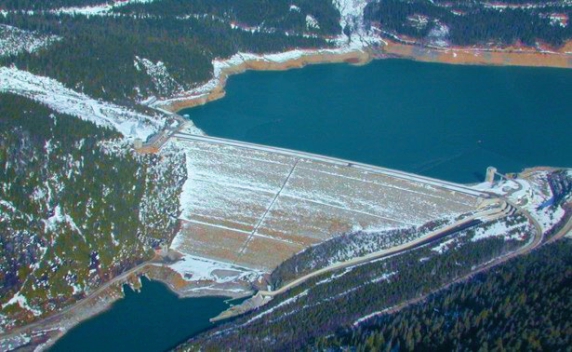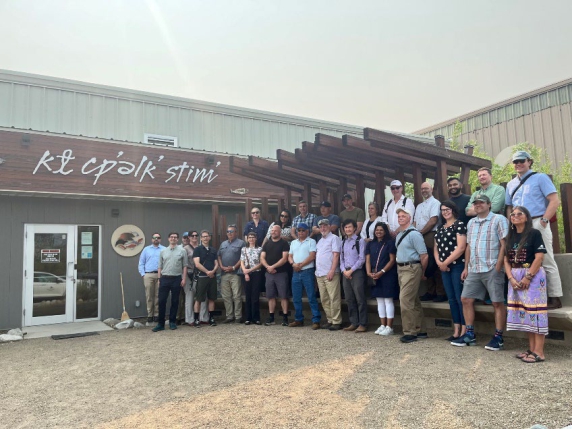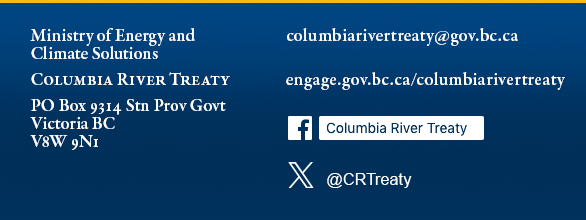Columbia River Treaty
Edition: April 2024

Update on Negotiations Towards a Modernized Columbia River Treaty
Apr 29, 2024

Mica Dam
2023 was a year of accelerated activity in the ongoing process of modernizing the Columbia River Treaty.
The pace of negotiations between Canada and the U.S. intensified with delegations from both countries meeting for five formal rounds of discussions in January (Vancouver), March (Washington DC), May (Kelowna), August (Seattle) and October (Portland). Numerous virtual intersessional meetings were held between each round to make further progress on technical issues, and advance discussions on the challenges and opportunities in integrating Canada and the United States’ respective and mutual water-management objectives.
The teams exchanged two more rounds of proposals last year, bringing the total to four, outlining each county’s thinking on what a modernized Treaty could include. The proposals are developed with the goal of finding agreement on an updated Treaty framework that includes not only flood risk management and hydropower co-ordination, but also ecosystem health, salmon restoration, adaptive management, increased flexibility for Canadian operations, and enhanced bilateral engagement on Libby Dam operations.

Members of the Canadian and American Treaty Negotiation Delegations at the kł cp̓əlk̓ stim̓ Hatchery near Penticton, May 2023
While much progress has been made and the countries are in alignment on many issues, a few key pieces remain outstanding. Both countries are keen to reach an agreement-in-principle as soon as possible; however, the Canadian negotiation delegation, which includes Canada, B.C. and the Ktunaxa, Secwepemc and Syilx Okanagan Nations, maintains that a modernized Treaty will have to meet B.C. Indigenous and Basin community objectives, as well as U.S. needs, in a fair and balanced way. The team will not agree to a modernized Treaty unless it leads to improvements in the B.C. Basin and reduces impacts that Basin communities and ecosystems have been experiencing since the Treaty came into force. And, as B.C. has asserted from the beginning, the benefits of the Treaty must be shared equitably between the two countries, in accordance with the founding principle of the Columbia River Treaty.
Though the next round of negotiations has not been scheduled, the Canadian and American delegations have continued holding virtual intersessional meetings to work through unresolved issues.
On a logistical note, the role of Canada’s lead negotiator for the Treaty changed hands last August. Sylvain Fabi, who had been leading the Canadian delegation on behalf of Global Affairs Canada since 2017, stepped down to focus on his role as Consul General of Canada for the U.S. Mountain West Region in Denver, Colorado. Stephen Gluck, Deputy Director, Global Affairs Canada, moved into the lead negotiator role and has been representing Canada in all Columbia River Treaty public forums since that time. Stephen has been Sylvain’s second-in-command throughout negotiations and has been on the Treaty modernization team at Global Affairs Canada since 2011. The strong collaboration between Canada, B.C. and Basin Indigenous Nations has continued under his leadership, as has the respectful relationship with the U.S. negotiation delegation.
Many who are familiar with the Treaty will know 2024 marks an important milestone. If Canada and the U.S. do not reach agreement on a modernized Treaty, the Treaty continues in its current form. This means the original flood control provisions will expire this September and shift to a “Called-Upon” regime, requiring the United States to utilize their reservoirs to manage flood risk before ”calling on” B.C. for additional water storage. See the Treaty Fact at the end of this newsletter for more detail. 2024 is also the first year either country can unilaterally terminate the Treaty provided at least 10 years notice is given. It is also worth acknowledging that both the U.S. and B.C. are holding elections this fall. The Treaty has historically been a non-partisan issue, and negotiations have continued through multiple administrations and governments on both sides of the border. Still, 2024 has the potential to be an interesting year.
With the heightened awareness of climate change, ongoing drought across the province, and the increased societal demand for hydroelectricity, there is intense interest from citizens, communities, Indigenous Nations, Tribes, and governments on both sides of the border in the potential benefits of a modernized Treaty.
It’s important to note that there is no deadline for negotiations. Canada, B.C. and the Indigenous Nations will take the time needed to reach a fair and equitable agreement that is in the best interest of the Canadian Basin. Before a renewed Treaty is finalized, the Province of B.C. will engage with Basin communities to explain what is being proposed and seek feedback.


